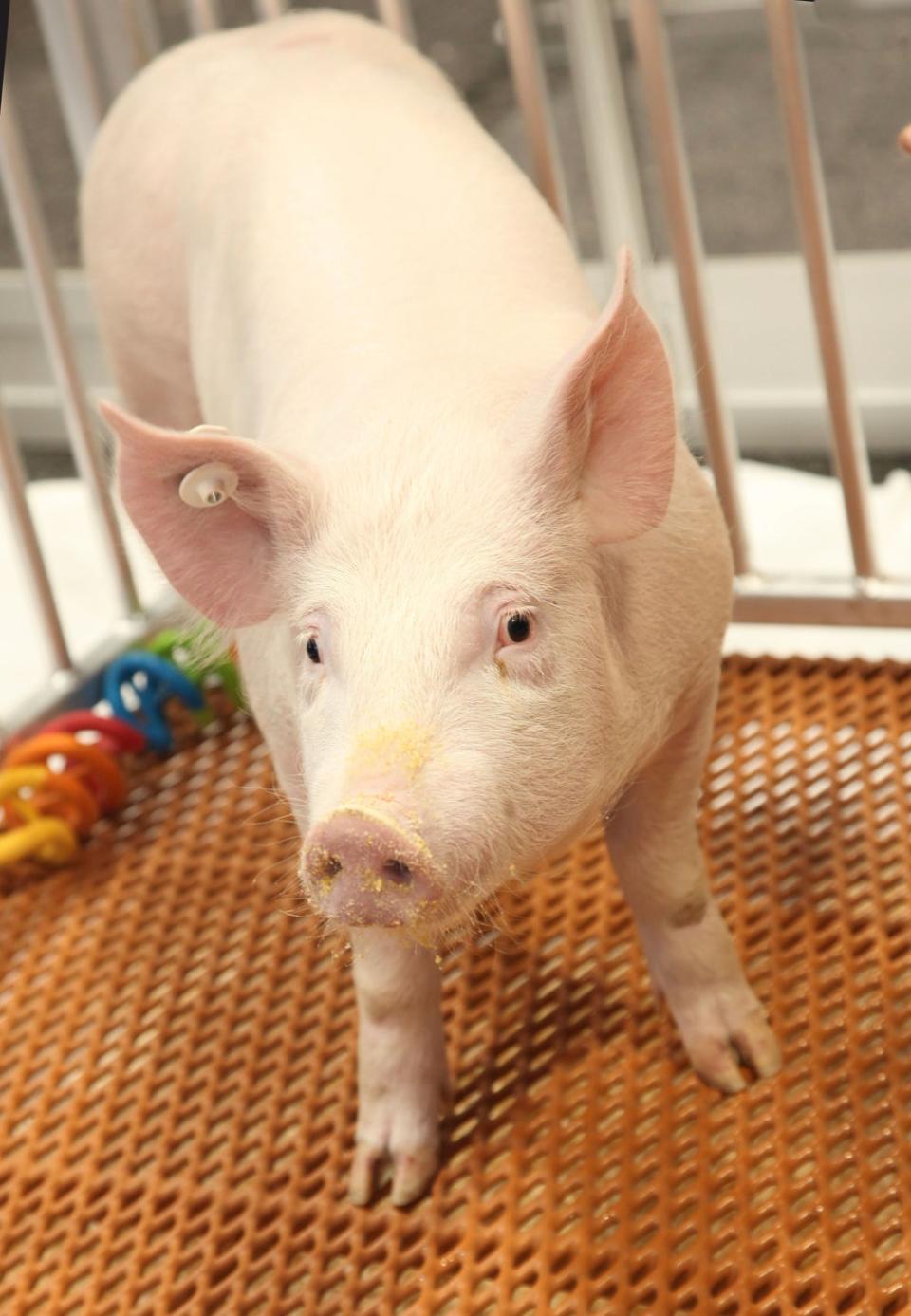US surgeons perform first successful transplant test involving pig kidney in a human

Surgeons have successfully transplanted a pig kidney onto a human without triggering an immediate rejection from the human immune system for the first time, taking researchers a step closer to using animal organs for transplants.
The procedure was conducted at NYU Langone Health in New York city, using a pig whose genes had been altered.
Earlier, the human immune system would reject such a transplant because of the presence of Glycan, a sugar molecule in pig cells.
The pig’s genes were altered this time to remove the molecule and avoid such a rejection.
The recipient was a patient who had kidney dysfunction and had been pronounced brain dead. The patient’s family had consented to the procedure before doctors were to remove life support.

Researchers attached the pig kidney to the patient’s blood vessels, kept it outside the patient’s body and observed it for three days.
They discovered the kidney had not been rejected by the patient’s autoimmune response and found the patient’s abnormal creatinine level, indicating poor kidney function, had returned to normal.
The pig kidney made “the amount of urine that you would expect” from a transplanted human organ, Robert Montgomery, a transplant surgeon and lead scientist of the study based on the procedure, told Reuters. Dr Montgomery is himself a recipient of a heart transplant.
He added that the experiment should pave the way for trials in patients with end-stage kidney failure in the next year or two. These trials may be short term solutions till a kidney becomes available.
Animal-to-human transplants, known as xenotransplantations, date back to the 17th century, when attempts were made to use animal blood for transfusions.
Scientists have turned to pigs of late as their organs are comparable to humans.
The pig used in the research had been provided by Revivicor, a subsidiary of United Therapeutics, a company that engineered a herd of 100 others at a facility in Iowa.
The Food and Drug Administration (FDA) approved the gene alteration in the Revivicor pigs as safe for human food consumption and medicine in December last year. But the FDA said more documentation was needed for pig organ transplants to humans.
The research is a significant step that we are moving in the right direction, Andrew Adams, of the University of Minnesota Medical School, told the Associated Press (AP).
Raising pigs to be organ donors may, however, give rise to ethical problems. This can become more acceptable if concerns about animal welfare are addressed, Kate Maschke, a research scholar at the Hastings Centre, told AP.
The Hastings Centre has received a grant from the National Institutes of Health to help develop ethics and policy recommendations for the first clinical trials.
Read More
Scientists investigate new Delta sub-variant ‘expanding’ throughout England
Infrared light therapy could help people with dementia, scientists say
Covid cases surge in southwest England after lab testing fiasco
Scientists find protein that could help people erase bad memories
Tuberculosis deaths rise for first time in a decade due to impact of Covid pandemic
Miners had ‘sophisticated’ diet of blue cheese, beer 2,700 years ago

 Yahoo News
Yahoo News 